You are currently browsing the category archive for the ‘Policies’ category.
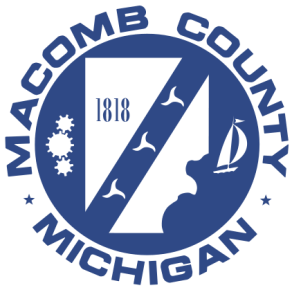 FOR IMMEDIATE RELEASE: June 20, 2014
FOR IMMEDIATE RELEASE: June 20, 2014
MOUNT CLEMENS, The Macomb County Board of Commissioners passed a Complete Streets resolution on June 19, which promotes a safe and efficient network of public streets.
Through this policy, public streets will be more accessible to bicyclists, pedestrians, motorists and public transit by approaching all future transportation projects with the Complete Streets Policy in mind. This means the planning, design and construction of public streets will not just be automobile-centric. Rather, standards to review and implement aspects of complete streets will be adopted, with projects near public service areas and institutions being prioritized to best enhance the health, safety and general welfare of Macomb County residents.
Complete Streets based projects may include, but are not limited to, adding bike lanes, curb ramps, making crossing times longer or adding tactile and audible signs.
The Board adopted this policy to not only encourage a better standard of living for Macomb County residents, but to also continue pursuing environmentally sustainable and economically efficient infrastructure projects.
“I am proud to see this policy come to fruition after years in the making,” Board Chair Dave Flynn said. “This policy is a step forward in improving the quality of life and embracing all modes of transportation in Macomb County.”
This policy was created through a collaboration between the Board of Commissioners, the Macomb County Roads Department and the Macomb County Department of Planning and Economic Development.
In 2010 then Gov. Jennifer Granholm enacted a law requiring for a Complete Streets policy to be created at the state level. The Michigan Department of Transportation completed this policy in July of 2012.
###
 The Road Commission for Oakland County (RCOC) Board of Road Commissioners, at its regular meeting today (Thursday, Sept. 27), accepted a set of Complete Streets guidelines intended to steer the agency in its efforts to apply complete streets concepts to county roads.
The Road Commission for Oakland County (RCOC) Board of Road Commissioners, at its regular meeting today (Thursday, Sept. 27), accepted a set of Complete Streets guidelines intended to steer the agency in its efforts to apply complete streets concepts to county roads.
The guidelines were compiled by the RCOC Complete Streets Review Committee, which, in addition to RCOC staff, included a number of county and local officials, transportation experts and others. The committee created the guidelines over the last 15 months.
“We strongly support the concept of complete streets and the idea that public roads should be as safe and accessible as possible for all legal users,” stated ROCC Chairman Eric Wilson. “These guidelines represent our commitment to that philosophy.”
The guidelines were adopted unanimously by the three-member RCOC Board. Board Member Ron Fowkes served on the Complete Streets Review Committee.
“This was a very constructive process,” Fowkes said of the committee’s work. “The committee included a broad spectrum of opinions related to complete streets, and that diversity of opinion is reflected in the guidelines. This document will guide this agency’s approach to all road users as we move forward.”
The guidelines also acknowledge that the agency must operate with the resources available. “We are wholly committed to complete streets and to all road users,” stated RCOC Managing Director Dennis Kolar. “But, we also acknowledge that resources are scarce, and that we have to balance the needs of various user groups.”
He added that the process of creating the Complete Streets Guidelines has reinforced for RCOC the critical importance of the agency’s partners in these efforts. “This process reminded us that we must work closely with all of our partners,” Kolar said, “especially the communities, and that this collaboration must come as early as possible in the road-project selection and design processes.”
The guidelines review the numerous groups of legal road users and their needs and discuss how they might be accommodated while acknowledging that Michigan is in the midst of a road-funding crisis that makes it hard for road agencies to merely maintain the existing road system. The guidelines sum up this challenge as follows: “Complete streets implementation, as a component of an improved, well-functioning transportation system, has entered the depleted scene of transportation financing, where it must compete for limited funding. State and local leaders are challenged to think in new ways about how to plan and fund the infrastructure that will provide for the future economic growth of the area.”
Download the RCOC Complete Streets Guidelines (PDF)
 The Twin Cities Area Transportation Study, the group of communities in the Benton Harbor/St. Joseph area that work with federal, state, and local jurisdictions to plan for the transportation system in the area, recently passed their very own Complete Streets Policy! You can review the policy at http://www.swmpc.org/walkbiketwincats.asp.
The Twin Cities Area Transportation Study, the group of communities in the Benton Harbor/St. Joseph area that work with federal, state, and local jurisdictions to plan for the transportation system in the area, recently passed their very own Complete Streets Policy! You can review the policy at http://www.swmpc.org/walkbiketwincats.asp.
The policy aims to include non-motorized facilities in the development of all transportation projects within the planning jurisdiction. The design of our communities have not always taken into consideration other users of the transportation network, this policy aims to change the culture and infrastructure of an evolving region and demographic. This policy was developed with help from local municipalities, county road commission, MDOT, Disability Network of Southwest Michigan, and local advocacy groups representing biking, transit, and walking coalitions.
The next phase of the TwinCATS Walk and Roll Committee will be to develop a Top 10 list of locations in the planning area that need non-motorized facilities.
For more information about the TwinCATS Walk and Roll Committee or the process that was used to develop the policy contact Suzann Flowers at [email protected] or (269) 925-1137 x 17.
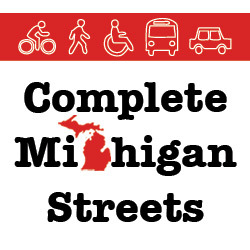 Yesterday the State Transportation Commission (STC),a six-member board that establishes policy and plans for Michigan’s transportation department, formally adopted a Complete Streets policy. The policy will direct Michigan Department of Transportation planners to keep all users in mind – including bicyclists, transit riders, motorists and pedestrians of all ages and abilities.
Yesterday the State Transportation Commission (STC),a six-member board that establishes policy and plans for Michigan’s transportation department, formally adopted a Complete Streets policy. The policy will direct Michigan Department of Transportation planners to keep all users in mind – including bicyclists, transit riders, motorists and pedestrians of all ages and abilities.
The STC invited public comment on the draft Complete Streets policy released at its June 28 meeting in Sault Ste. Marie. Many citizens and bicycle and pedestrian advocates across the state took advantage of the public comment period to request that the policy include stronger, clearer and more specific language with firm timelines for implementation. This included a petition drive led by the League of Michigan Bicyclists (LMB), which collected nearly 2500 signatures in a single week.
We thank the STC for being so responsive to the requests made by concerned citizens. Added and/or modified language strengthened the final policy providing more clarity in a number of areas as outlined below. A big thanks also goes out to all of the Michigan Complete Streets advocates who took the time to comment on the draft policy - your voices were heard!
Public Act 135 of 2010 requires the STC to enact a Complete Streets policy by August 2012. The STC has worked closely with the governor-appointed 18-member Complete Streets Advisory Council on the draft policy. The group’s role, according to law, is to advise the STC, county road commissions and municipalities on Complete Streets policies. Council members represent road and transit agencies, state agencies, walking and biking organizations, and environmental, senior citizens and disabled persons groups.
Below is a analysis of the final policy comparing it to the major revisions requested by the LMB petition.
- Strengthen implementation language.
- Identify the procedures or guidelines that will be developed or revised. – Did not include.
- Include a timeframe by which implementing documents will be developed or revised. – Included, by December 31, 2013.
- State a commitment to continue programs to educate and train MDOT personnel and other stakeholders on complete streets implementation. – Included language about training/education.
- Include language about implementation accountability. – Included language with a bit more specificity on what MDOT will report annually to the STC, but nothing about who will be responsible for developing/revising procedures, etc.
- State a commitment to continuing to base facilities design and construction on existing laws, best practices, and guidance documents. – Included language about this.
- Strengthen exception language.
- Refer to the exceptions already outlined in PA 135. – Not specifically referenced.
- Include a timeframe by which an exception procedure document will be developed. – Included, by December 31, 2013
- Include language about developing and using performance measures. – Included language about what MDOT will report annually to the STC, which stated “any information/examples to gauge MDOT’s performance.” (Not exactly what we was requested.)
- Strengthen language to direct MDOT to work with local road agencies (change “may” to “shall”). – Language was strengthened; “MDOT shall work with local road agencies that are undertaking road or bridge projects with federal funds…”
- Amend language about the network approach to expand “non-motorized” users to include all users, including people with disabilities and transit users. – Language states “all users”
- Specify whether there will be a sunset on annual reports to the State Transportation Commission. – Not specified.
Read the final policy below or download a PDF here.
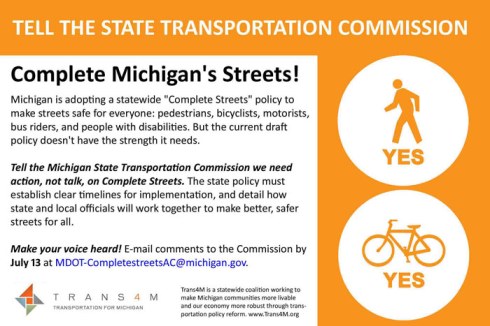 Michigan officials need your input on a draft policy that could make streets in your community much safer.
Michigan officials need your input on a draft policy that could make streets in your community much safer.
It’s Michigan’s official Complete Streets policy, and through July 13, you can join other citizens around the state to send a clear message to the state:
Adopt a policy that is strong and that moves Michigan forward.
Last week, the Michigan State Transportation Commission, a six-member board that establishes the policy and plans for Michigan’s transportation department, released a draft policy for implementing Complete Streets on state roads. The Complete Streets policy will direct Michigan Department of Transportation (MDOT) planners to design and maintain roadways that fit within the context of the community and keep all users in mind, including bicyclists, public transit riders, motorists, and pedestrians of all ages and abilities.
While the state’s effort is a step in the right direction, most bicycle, disability, bus, and pedestrian advocates around the state think the policy could be clearer, more specific, and include firm timelines for implementing Complete Streets procedures.
Without clarity and timelines most feel that the policy could become just another document that sits on a shelf in Lansing.
Michiganders have made it clear. They want safe and convenient transportation choices. And they want better, safer, and more Complete Streets.
To make sure Michigan adopts a strong policy, here’s how you can get involved:
Read the 2-page DRAFT Complete Streets policy here.
Please send an email to the Michigan State Transportation Commission and tell them how you feel about roads in your local community.
Here’s the email address: [email protected]
In your note, please tell them that you want a complete streets policy that:
- Establishes clear internal timelines and specific procedures that the Department, must adopt;
- Commit to training Department staff and other stakeholders on Complete Streets implementation, and;
- Directs state officials to use best practices while working with local officials and stakeholders on best practices to make better, safer streets for all.
Spread the word on Facebook:
Please “like” and “share” Trans4M’s Facebook postcard. Include the caption:
Michigan is adopting a Complete Streets policy and we think it can be better. Tell the Michigan State Transportation Commission that we need a stronger Complete Streets policy! http://bit.ly/MU9HJv
Let’s move Michigan forward!
Please “like” and “share”
To learn more about Complete Streets in Michigan, check out the Michigan Complete Streets Coalition website: http://michigancompletestreets.com
Let’s move together to complete Michigan’s streets!
 As a result of planning efforts for “Complete Streets,” the City of Lathrup Village has adopted an ordinance that will help facilitate future street, bike facility, and sidewalk improvements.
As a result of planning efforts for “Complete Streets,” the City of Lathrup Village has adopted an ordinance that will help facilitate future street, bike facility, and sidewalk improvements.
With assistance of Lathrup Village‐based Birchler Arroyo Associates, Inc., a Michigan planning firm that specializes in downtown planning and transportation consulting, the City Council and Planning Commission have been developing a Non‐Motorized Transportation Plan (NMTP), a Non‐Motorized Transportation Improvement Program (TIP), and a Complete Streets Ordinance. The purpose of these efforts is to guide the planning, design, construction and reconstruction of roadways, sidewalks, bicycle paths, and other transportation facilities, making them “Complete Streets.”
Recent legislation adopted in Michigan provides a method for achieving “Complete Streets” in communities across the state. “Complete Streets” is a relatively new term that describes a transportation network that provide safe and efficient access to users, whether they travel by car, truck, transit, assistive device, foot, or bicycle. In Lathrup Village, plans for street and sidewalk repairs are made annually. However, the City recognized the need to address non‐motorized transportation more fully and with an emphasis on improving the connectivity in and around the entire City, despite the physical boundaries of Southfield Road and I‐696, which bisect the City from east to west, and north to south, respectively.
The Reverend Oscar King III, a Lathrup Village Planning Commissioner, sums up the “Complete Streets” planning efforts by noting, “In my sense, it redefines Lathrup Village so that it becomes something more than somewhere people drive through, getting to somewhere else. It becomes a destination, a wellplanned destination, that can respond to what was, what is, and allow us to plan for the future.”
Birchler Arroyo Associates Inc. vice‐president Rod Arroyo agrees, “With the Complete Streets Ordinance, the City is taking a big picture approach to creating a complete transportation network for its residents and businesses. “ The new ordinance will require the City to consider how improvements can be made to the non‐motorized transportation network when other types of public infrastructure projects are undertaken.
The Planning Commission is holding a public hearing on the Complete Streets‐Non‐motorized Transportation Plan on November 8 and anticipates that the plan will be adopted as an amendment to the City’s Master Plan by December.
Download the Lathrop Village Complete Streets ordinance
*********
Lathrup Village, Michigan is in a highly desirable location in southern Oakland County. Conveniently located off I‐696, the City is within easy reach of the areas major cities and destinations. It has a population of over 4,500 and covers 1 1/2 square miles. The majority of its commercial uses are located on Southfield Road, an important north‐south arterial. Jeff Mueller is the City Administrator. Birchler Arroyo Associates, Inc. is a planning and transportation consulting firm located in Lathrup Village, MI. Since 1989, Birchler Arroyo Associates, Inc., has been a leader in community planning and transportation consulting in southeast Michigan. The firm’s award‐winning plans and tools have been recognized at the state and national levels for planning excellence. For more information on Birchler Arroyo Associates, Inc., please contact Rod Arroyo at 248.423.1776 or visit their website: www.birchlerarroyo.com
 Last night was a big night for non-motorized transportation in Traverse City. The City Commission passed a Complete Street resolution without discussion as part of a consent agenda. Resident and local advocate Gary Howe commented on his blog that, “It may not be the bold resolution or ordinance that some of us would have written, but as long the actions to follow include the planning, consideration and implementation for all users–it’s all good.”
Last night was a big night for non-motorized transportation in Traverse City. The City Commission passed a Complete Street resolution without discussion as part of a consent agenda. Resident and local advocate Gary Howe commented on his blog that, “It may not be the bold resolution or ordinance that some of us would have written, but as long the actions to follow include the planning, consideration and implementation for all users–it’s all good.”
He went on to encourage continued participation in the regional Complete Streets Coalition that has been formed to discuss opportunities to implement Complete Streets within the Grand Vision in Northwest Michigan.
Shortly after the City Commission adopted the Complete Streets resolution, they also adopted an amendment to the City Code of Ordinances, Uniform Traffic Code Section 410.03, that requires all vehicles (including bicycles) to stop for pedestrians in marked crosswalks. State law currently only requires drivers to yield to pedestrians, not necessarily stop for them when they are attempting to enter the street from the curb. By passing this ordinance, Traverse City joins Ann Arbor in passing policy meant to help people safely cross a street. Ann Arbor has had their ordinance for about a year, but only recently began ticketing people for not following the new local law.
The Michigan Complete Streets Coalition congratulates the Traverse City Commission and local advocates for their ongoing efforts to improve safety for all roadway users.
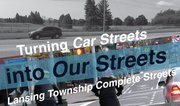 On September 13, 2011, Lansing Township passed a Complete Streets ordinance in order to promote the public health, safety, comfort, convenience, and general welfare for walking, bicycling, and public transportation and to encourage increased use of these modes of transportation as part of daily activities, while at the same time securing adequate traffic circulation to the roadways, streets and highways to achieve the maximum utility and livability on individual parcels. Lansing Township became the ninth community in Michigan to adopt a Complete Streets ordinance, but the first township to do so in the state.
On September 13, 2011, Lansing Township passed a Complete Streets ordinance in order to promote the public health, safety, comfort, convenience, and general welfare for walking, bicycling, and public transportation and to encourage increased use of these modes of transportation as part of daily activities, while at the same time securing adequate traffic circulation to the roadways, streets and highways to achieve the maximum utility and livability on individual parcels. Lansing Township became the ninth community in Michigan to adopt a Complete Streets ordinance, but the first township to do so in the state.
Because townships do not own their roadways and must work with and through county road commissions and the Michigan Department of Transportation to implement roadway projects, the ordinance is unique.
The Township committed to approaching every transportation project and program as an opportunity to collaboratively implement Complete Street practices and infrastructure in order to improve public and private streets and the transportation network for all users. It also recognizes public investments by prioritizing Complete Streets projects that are located near public service areas (e.g., schools, government facilities, libraries, public health facilities, parks, hospitals, etc.) and that provide improved access to healthy food (e.g., farmers markets, full service groceries, community gardens, etc.). The Township recognizes that not all modes of travel are appropriate on all streets and therefore outlines specific exceptions. The Township also has a detailed plan for collecting data and measuring the impact of their Complete Streets ordinance and projects.
This ordinance comes after a year-long process of exploring the benefits of Complete Streets and approaches to implementation with partners such as the Ingham County Health Department and Tri-County Regional Planning Commission. Lansing Township is also currently developing its non-motorized transportation plan which will help to implement the Complete Streets ordinance.
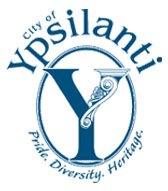 By Bob Krzewinski, Chair of the City of Ypsilanti Non-Motorized Advisory Committee
By Bob Krzewinski, Chair of the City of Ypsilanti Non-Motorized Advisory Committee
Over the summer of 2011, the City Council of the City of Ypsilanti voted on, and approved, a Complete Streets ordinance, becoming the 8th Michigan community to locally put Complete Streets into law. The Ypsilanti Complete Streets ordinance takes effect on September 17th, thirty days after the last of two required votes by City Council.
Complete Streets policies ensure that when roads are constructed, or rebuilt, they are designed and operated to enable safe access for all users. Pedestrians, bicyclists, motorists and transit riders of all ages and abilities can move safely along and across a Complete Street. They improve public safety and reduce crashes by providing dedicated pedestrian and bicycle infrastructure, such as safe crosswalks, sidewalks and on-road bicycle facilities such as bike lanes and sharrows.
Complete Streets also have an extra benefit in that they tend to boost local economies by increasing residential property values. Demand for walkable communities is growing across the country and home buyers are often willing to pay a premium to live in areas where they can safely walk and bike. Businesses located along Complete Streets corridors also often report increased sales after pedestrian, bicycle and transit facilities are installed.
Complete Streets also promotes public health by making it safe and convenient for children and families to incorporate physical activity into their daily lives. With Michigan’s rampant obesity epidemic, Complete Streets provides a golden opportunity to replace our crumbling transportation infrastructure with safe and convenient active transportation options.
By passing a Complete Streets ordinance, the City of Ypsilanti joins scores of communities across Michigan that are embracing Complete Streets, including Washtenaw County neighbors in Saline, Dexter and Ann Arbor.
With rising gasoline prices, more and more Michigan residents are walking and bicycling for both transportation and recreation. Complete Streets ordinances, such as recently enacted by the City of Ypsilanti, will certainly help make such activates not only more possible, but easier and safer.
Download Ypsilanti’s Complete Streets ordinance here.
 FOR IMMEDIATE RELEASE via
FOR IMMEDIATE RELEASE via
Disability Network/Lakeshore
The City of Otsego continued their vision of designing a healthy and accessible community at their regular scheduled City Council meeting Monday night.
Otsego City Council members unanimously approved a Complete Streets Resolution to include Complete Streets design considerations and practices as a routine part of infrastructure planning and implementation. The resolution comes after a presentation was made by Kathryn Gray, Public Policy Specialist for Disability Network/Lakeshore, to the Otsego Planning Commission at their June 27th meeting indicating the benefits of such a resolution.
Complete Streets are achieved when local organizations and agencies routinely plan, design, construct, re-construct, operate, and maintain the transportation network to improve travel conditions for bicyclists, pedestrians, and people with disabilities in a manner consistent with, and supportive of, the surrounding community.
City Manager of Otsego, Thad Beard, drafted a resolution of support for the council to vote on Monday night. Beard supported the resolution stating, “Complete Streets are for all modes of transportation, including all ages and abilities, and offers the potential for greater quality of life for our residents. Our City recognizes the importance of street infrastructure enabling safe, convenient, and comfortable travel for all users.”
Mayor Gilmer noted that passing this resolution, “will be great for our community!” Many benefits come from implementing Complete Streets including economic growth and community stability in providing accessible and efficient connections between home, work, school, recreation, and retails destinations.
Gray indicated that one of the many benefits of passing a resolution “is the potential for priority when applying for transportation enhancement grants through the Michigan Department of Transportation (MDOT).” Gray is a certified trainer of Complete Streets from the Michigan Department of Community Health’s Complete Streets Institute. “Both the Otsego Planning Commission and City Council had no objections to such a resolution and were eager to begin thinking about incorporation of Complete Streets in their planning processes.”
Over 45 Michigan communities have adopted a Complete Street ordinance or resolution. The City of Otsego joins the Cities of Holland and Allegan in Allegan County in passing such resolutions.
For more information:
Kathryn Gray, Public Policy Specialist
Disability Network/Lakeshore
(616) 396-5326
[email protected]















